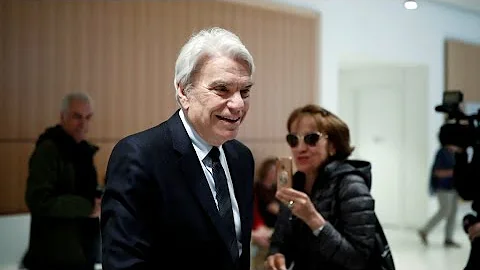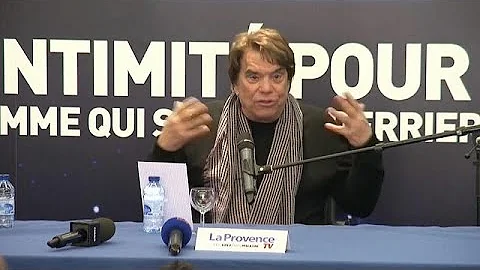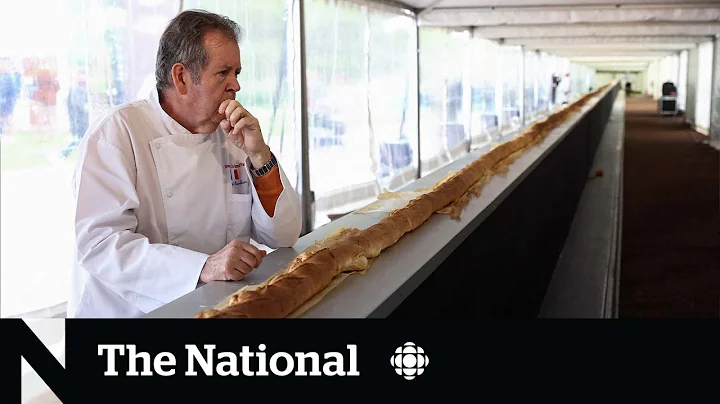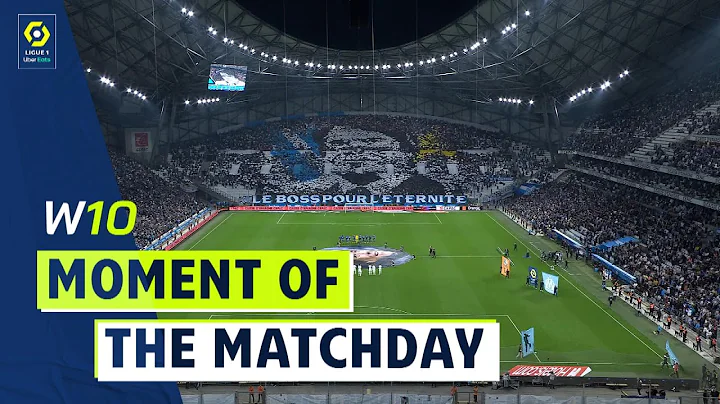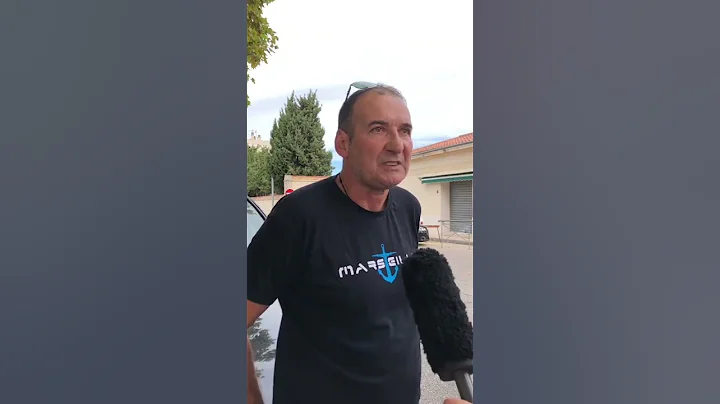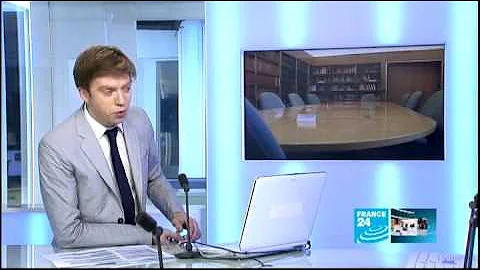Gong Ke (Doctor of Laws, media person living in France)
On October 3, French media reported that the famous business tycoon Bernard Tapie died of cancer in Paris at the age of 78.
This is not the first time he has been "dead": in the past two years, he has been misinformed about his obituary by the media at least three times. However, this time it's for real.
For Chinese readers, Tapi’s name is more associated with football. Senior fans will still talk about the classic battle of Marseille defeating AC Milan and winning the European Champions Cup in 1993. At that time, he was the chairman of Marseille Club. Tapi is the meritorious figure who created this glorious moment. However, although football is his brightest business card, it is far from everything to him. After decades in business, sports, politics, media, and entertainment circles, Tapie has an extremely rich and complex image. After his death, the French media tended to conclude his coffin with the words "The Man with a Thousand Faces" and "The Man with a Thousand Lives", or rather, the coffin was closed with no conclusion.
The death of this celebrity who once caused countless disturbances will probably make many people in the French political and judicial circles secretly breathe a sigh of relief. The "Credit Lyonnais case" that was once a hot topic will gradually fade out of public view. But for France, Tapie's death means the loss of an outstanding and topical iconic figure. In a sense, it is even the end of an era.
What is intriguing is that if the "pro-Qing" political and business relationship is used as a frame of reference, Tapi can be said to have gone in the opposite direction. He is neither "Qing" - he started in business and reached the top with sports. He is not only full of countless tricks and tricks, but also has many scandals and cases; nor is he "Qing" - he has made countless enemies in the political arena, and for the sake of the four Billions of euros went to court with the French government, which upset the whole country and made the director general of the International Monetary Fund (IMF) famous internationally but disgraced at home.
So, the real question is probably why such a "bad record" figure can still be active in the political, business, and media arenas for many years without being silenced or blocked, and is regarded as a hero by some people—— Not only the citizens of Marseille who flocked to the mourning hall to express their condolences, but even President Macron paid tribute to him, saying that Tapie's "ambition, energy and enthusiasm were a source of inspiration for generations of French people"?

On October 8, 2021, in the Port of Marseille in southeastern France, people mourned Bernard Tapie, the French business tycoon and former owner of Marseille Football Club .
A business tycoon from a humble background
Tapie was born in Paris in 1943 and grew up in a working-class family in the 93rd department in the northern suburbs of Paris (a typical example of "suburban diseases" such as poverty and immigration in France). His grandfather was a railway employee and his father was a milling worker. , he himself has never attended a prestigious school and only obtained an electrical technician diploma. The young Tapy was in love with music and sports and tried to develop in the entertainment industry. At the age of 23, he took the stage name "Tapy" (the pronunciation sounds more American) and released three records in one go. Not popular. He even drove a Formula Three car (F3), but abandoned that path after a serious accident.
After his fantasy was disillusioned, Tapi returned to reality and started a small business. He opened a store selling televisions in the eastern suburbs of Paris. The business was successful at first, but then went downhill. Tapi is good at proposing business plans and seizing the market at low prices, but he has little interest in trivial daily management work. In 1974, he transitioned into the field of medical devices and started a company called "Cœur Assistance" to sell a portable box to heart patients. Once the disease attacks, they only need to press a button on the box. , you can call the company’s ambulance. This was a forward-looking business idea, but at that time, both technological development and industry experience were far from mature. The doctors' union complained about this, believing that it could not protect the safety of patients, so the business also failed. Let it go.
After entering the 1980s, Tapie began the rise of his career. He was good at finding companies that were in trouble and insolvent, buying them at a very low price, or even a symbolic franc, and then reorganizing them. , and then sell it at a high price of millions of francs after the business improves slightly. Using this "Midas-to-gold" approach, he successively took over enterprises such as scale manufacturer Terraillon, bicycle manufacturer Look, organic food supermarket La Vie claire, scale manufacturer Testut, battery manufacturer Wonder, and tennis equipment manufacturer Donnay. . Because of these achievements, he was once dubbed "Zorro of the corporate world." Of course, some of these companies were indeed brought back to life by his hands and are still famous brands in the French industry to this day; but some of them were just hanging on, and he just saw the right opportunity to make a profit.
In the field of sports, Tapi also has the same keen sense of business as he does in business - or the two are originally the same thing. He specializes in identifying athletes and teams that have hit a slump but still have potential. In 1983, seeing the opportunity when the relationship between four-time Tour de France champion Bernard Hinault and the Renault team broke down, he formed a new cycling team around Hinault and used his own organic food supermarket La Vie claire name. In 1985 and 1986, the team won two consecutive championships in the Tour de France.
Later, Tapie's interest shifted from bicycles to football. He bought the bankrupt Marseille Olympique Club with a symbolic 1 franc and recruited players. Later, a generation of French football elites became internationally famous - Papin, Cantona, Deschamps , Desailly, Barthes and others have all played for Marseille. Tapie worked hard to build this team and was the club's ubiquitous "boss", and this American title became his label in life. From 1989 to 1992, Marseille dominated the French Ligue 1, reached the Champions League finals twice, and defeated AC Milan of Italy in 1993 to win the European Champions Cup for the first time, becoming the pinnacle of Marseille's history. , is also the only record for a French club to win the trophy so far.
In June 1988, Tapie, who had become the owner of the Marseille team, caused a stir in public opinion with another feat: he led a team of 20 people to sail the world's largest sailing yacht "Phocéa" at the time. ), departed from New York, USA, and arrived in Saint-Malo (Saint-Malo) in northwest France after experiencing turbulent waves. The whole journey took 8 days, 3 hours and 29 minutes, breaking the previous record for sailing across the Atlantic Ocean.
In the aura of victory, Tapi decided to push his sports and business empire a step further. His goal was to target the then-embattled German sporting goods giant Adidas . Of course, this time it is no longer the symbolic one franc, but 245 million euros. After the acquisition was successful, Tapi made drastic reforms and moved some production lines to Asia, turning the company back into profitability two years later.
's acquisition of Adidas became the pinnacle of Tapi's business career. It was a "lifelong career" in his eyes, but it also paved the way for future lawsuits.
An opponent of the extreme right and a pawn of the leftist president
In the 1980s, Tapi became popular in the business world and attracted the attention of the Socialist President Mitterrand. The latter hopes to win over business elites to support his re-election campaign, and the good image of this "Corporate Zorro" meets his needs. With the support of Mitterrand, Tapie successfully ran for election in Marseille in 1988 and entered the National Assembly. A celebrity who entered politics with a halo of success in business and sports naturally aroused great interest in public opinion. At that time, some media even speculated that "this is not a small ambition." In time, he might compete for the presidency.
What further thrust Tapie into the political spotlight was his 1989 televised debate with the leader of the far-right National Front party, Jean-Marie Le Pen. At that time, TF1 TV station invited figures from all major political parties to attend the TV debate program. However, when the latter learned that the old Le Pen was also participating, they all said that they could not accompany them and disdained to share the stage with them. Only Tapie was willing to appear and have a debate with the old Le Pen. The verbal and verbal exchanges gave him the aura of "courage to fight against the extreme right".
In the 1992 regional elections, Tapie ran in the Provence-Alpes-Côte d'Azur region. At that time, he even dared to go to the National Front's campaign rally to "smash the venue" and severely criticized the far-right camp's attitude on the immigration issue. When he spoke, he pretended to agree with the far-right views, advocating that immigrants should be shipped to distant places and then scuttled. Just as the audience applauded for this, he changed the topic and scolded: "I didn't read you wrong, I said What is happening is a massacre, but you are applauding it. Tomorrow when you shave or put on makeup, you should really vomit when you see yourself in the mirror..."
Tapi, who comes from a left-wing family and is a young man in the suburbs, has long been a fan. , the image presented to the public has always been that of a staunch opponent of the far right (although in the eyes of some observers, this firmness is quite questionable, and over time, Tapi's political stance gradually moved to the right, becoming Supporter of Sarkozy's ), which is one of the reasons why leftist President Mitterrand favors him. However, Mitterrand did not really lead Tapi as a comrade, but used him as a pawn needed by the times. This positioning also to some extent foreshadows Tapi's predicament in the second half of his life.

Mitterrand (photo by Gorup de Besanez)
In 1992, Tapie was recruited into the cabinet by Mitterrand and served as Minister of Urban Affairs. But this political rookie’s official career was not smooth: According to the media, at the first cabinet meeting he attended, Tapi spoke in a tone of planning major policies and successfully made enemies for himself within the government. And 53 days after taking office, he was accused of corruption by a former business partner and was forced to resign as minister to spend all his efforts to prove his innocence. When the accusations died down, he returned to the same position, but with less momentum. In 1993, the Socialist Party suffered a defeat in the local elections. Mitterrand reorganized the cabinet. Tapie was not retained, and his second term in the cabinet lasted only three months.
Compared with his short ministerial career, Tapi's more profound failure may be that he was involved in the line and factional disputes within the Socialist Party under the control of Mitterrand. In the 1994 European Parliament elections, Tapie originally wanted to join the leader of the right-wing faction of the Socialist Party and former Prime Minister Michel Rocard, but the latter considered that the match-fixing case that had broken out at that time might drag down the election. So I ignored it. Unwilling, Tapie turned to Mitterrand for help. Mitterrand did not express his support, but said that "the facts will only come from the ballot box", implying that he was optimistic about the outcome. Tapie, who understood the situation, then fought against Rocard and stayed alone. They organized a team to run for office and unexpectedly won 12.03% of the votes, which was only two percentage points less than the Socialist Party led by Rocard. This meant that the Socialist Party was greatly diverted from the votes and seats it might have obtained. Afterwards, Rocard angrily accused that he was shot down by a "missile named Tapie launched from the Elysée Palace", which meant that Mitterrand was doing small tricks behind the scenes in order to weaken his political power.
Although Mitterrand helped to support Tapie, he did not regard him as a direct descendant. Instead, he was only used as a tool to win over the business community and suburban youth, and to contain the Rocard faction within the party. But what became a later trouble was that although the Rocard faction had been politically suppressed by Mitterrand at that time, it had former Prime Minister Lionel Jospin as an ally, and the successors of this faction gradually became an important force in the left camp. , and even the later presidents Hollande and Macron, although they cannot be clearly classified as Rocard's faction, are deeply influenced by it, which has led to Tapi's ambition to make a comeback always facing an unfavorable climate. In fact, judging from the timing, Tapie benefited hugely from the arbitration result of the "Credit Lyonnais case", which happened during the right-wing Sarkozy government (critics believe that this has a lot to do with his "right turn" to support Sarkozy) relationship), and then Hollande faced overturning the verdict after coming to power, I am afraid it was not entirely a coincidence.
Credit Lyonnais Case: Disrupting the Political World for Thirty Years
When Tapie was recruited into the cabinet, Mitterrand's condition was that the former must completely separate himself from business.So in order to sell the shares of Adidas, Tapie entrusted the relevant business to SDBO, a subsidiary of Crédit Lyonnais (it was also through this company that the acquisition of Adidas was carried out). In February 1993, SDBO sold Adidas shares at the lowest price set by Tapi (2.085 billion francs).
In the same year, Crédit Lyonnais fell into bankruptcy due to huge losses caused by its previous large-scale expansion in the real estate field. The following year, Crédit Lyonnais announced that it would no longer repay Tapie's remaining debt, triggering a counterattack from the latter. Tapie accused Credit Lyonnais of violating its duty of loyalty by selling Adidas shares to investment institutions at a higher price (3.5 billion francs), earning a high premium from it, but keeping him in the dark and violating its duty of loyalty, and went to court. Ask Crédit Lyonnais (and CDR) to compensate for the losses. Due to the bankruptcy proceedings, Crédit Lyonnais was taken over by the French government's bad debt processing agency CDR. As a result, Tapie's legal dispute with Credit Lyonnais became a dispute between him and the French government.
In 1996, the Paris Commercial Court ruled that CDR should pay Tapie 600 million francs. The latter appealed. The court hoped that the two parties could mediate and settle the case, but this did not happen. After nearly ten years of litigation, in 2005, the Paris Court of Appeal ordered CDR to pay Tapie 135 million euros, while the government filed a complaint with the Supreme Court.

Lagarde (photo by Marie-Lan Nguyen)
In 2007, at the urging of Christine Lagarde, then Economy Minister of the Sarkozy government, Tapie and CDR agreed to settle the case through arbitration. One theory is that Lagarde is worried that the delay of the case may cause greater financial risks, because several previous relevant judgments have been in Tapie's favor; while "Le Monde" said that she had "no choice" because the decision was Elysee PalaceThe core figure was Claude Guéant, Sarkozy's crony and then Secretary-General of the Presidential Palace. The following year, the arbitration tribunal composed of three senior legal professionals made a decision: Crédit Lyonnais failed to fulfill its loyalty obligations to Tapi, so CDR should compensate Tapi 403 million euros (including 243 million euros for tangible losses and 1.15 million euros in interest). billion euros, mental damage of 45 million euros). After the announcement of the
sky-high arbitration results, public opinion in France was in an uproar. Lagarde's decision-making in the case has been questioned, especially her decision to give up her right to appeal on behalf of the government, which has become the target of public criticism. In 2011, the Prosecutor General of the Supreme Court filed a lawsuit with the Court of Justice of the Republic (CJR), arguing that Lagarde had "abused her authority" as Minister of Economy. In 2016, the Court of the Republic finally ruled that Lagarde should be held responsible for "negligent" behavior, but was exempted from criminal punishment in view of her international reputation as director general of the International Monetary Fund at the time. Although Lagarde was not substantively punished, she still became one of the few high-ranking ministerial officials in the history of the Fifth Republic to be held responsible by the courts of the Republic, and her political reputation suffered a heavy blow. Partly for this reason, Lagarde chose to become president of the European Central Bank after her term as director-general of the International Monetary Fund expired, rather than return to domestic politics.
As for the whereabouts of the 400 million euros, after the leftist Hollande government came to power in 2012, it tried to reopen old scores and made a request for recourse. In 2015, the Paris Court of Appeal found that there was fraud in the 2008 arbitration result and ruled to annul the arbitration decision, and Tapi must repay the 403 million euros the government had paid to him (in 2020, the court increased the repayment amount to 438 million EUR). Tapi himself has always maintained that he received only 245 million euros in compensation from the government. After getting the money, Tapie quickly spent it in various fields, because when the "Credit Lyonnais case" was overturned, the French government found that there was little left of this huge sum of money and it was difficult to enforce it.
In 2017, the Crédit Lyonnais case stirred up trouble again and ushered in the most violent judicial blow. The pre-trial judge sentenced Tapie and his lawyer Maurice Lantourne, former director of the Office of the Ministry of Economy Stéphane Richard, former member of the arbitral tribunal Pierre Estoup, and the former head of the CDR Jean-François Rocchi and Bernard Scemama, the former head of EFPR, the agency that was jointly responsible for the bad debt business of Crédit Lyonnais and CDR at the time, brought the case to court, accusing it of committing "organized fraud."However, in July 2019, the first instance verdict found that all defendants were not guilty, and the Paris prosecutor's office filed a protest against this. Just before the results of the second trial were released, Tapi passed away. Legally speaking, his death will not result in the dismissal of the entire case, but it has largely rendered the case meaningless.
A "black history" of unscrupulous means for success
The "Credit Lyonnais case" is the ultimate drama of Tapi's lifelong legal battles. However, in the previous decades, he was already full of controversy and was even denounced as a "liar" by some critics. and "Scoundrel." This experience is largely inseparable from his reckless background and his unscrupulous approach to achieving his goals. A life review article in Le Monde teased that by the end of his life, Tapi could have opened a law firm because he already knew the criminal code and its loopholes well.
In 1981, the 38-year-old Tapi began the first act of his long judicial career. At the time, his Heart Assistant company only had two ambulances, but advertised that it had five. Although he tried to distance himself from the relationship, claiming that he was "neither a leader, nor a shareholder, nor an employee" and pushed his wife to the front desk, he was still sentenced to probation for false advertising.
Earlier, he had traveled to Cote d'Ivoire to meet with the exiled dictator of the Central African Republic Bokassa (Jean-Bedel Bokassa). He tried to hide it, using the possibility of confiscation by the French tax authorities as bait to use only Bokassa purchased many of Bokassa's luxury properties in France at a low price that was one-tenth of the normal market price. However, after the transaction was completed, Bokassa came to his senses, sued in the local court and pursued recovery through the French court. "Wolf" failed, and Tapie was sentenced to 100,000 francs in damages.
After entering the sports world, whether it is cycling or football, Tapi regards money as the most unfavorable tool. He spared no effort to recruit outstanding players to work for him, and he also spent a lot of money to win over referees and visiting team players, and even used the name of "barber" to recruit prostitutes for the visiting team players to enjoy. Years later, he fell out with his former assistant Marc Fratani, who revealed that Tapi would do anything to win, and would even send someone to inject the anesthetic with a syringe into the drink bottles of opponent players, committing various illegal acts. attracted the attention of regulators. In 1991, Tapie was banned from football for one year for "serious unsportsmanlike conduct".
This warning did not make Tapi stop. In 1995, Tapie was accused of trying to bribe three main players of the Valenciennes club to "show mercy" in a French Ligue 1 match before the 1993 European Champions League final, so that the main players of Marseille could be raised. A team that is full of energy and reserves can still win. The match-fixing case ultimately resulted in Tapie being sentenced to two years in prison (eight months of which were actual) and barred from holding elected office for three years.
This case is groundbreaking because France has never sentenced such a heavy penalty for a match-fixing case before, and Tapie is the first defendant to be actually imprisoned for match-fixing (actually serving about six months). As a result, his position as a member of the parliament was revoked; and Marseille was disqualified from the Ligue 1 championship, relegated to Serie B, and banned across Europe. This was a fatal blow to Marseille, and it immediately fell into bankruptcy financially, except for some Except for the loyal and die-hard fans, most of the stars have left.
However, Marseille still stood out in the second division and won the championship in the 1994-1995 season. However, the regulatory authorities responsible for the financial balance of French clubs are still keeping a close eye on Marseille. There are professional sports factors and non-professional personnel hostilities. In the end, Tapie realized that Marseille could only survive if he resigned as club president. As a result, the meritorious helmsman who single-handedly created the miracle of Marseille sadly resigned from his position as chairman.
By the end of the 1990s, Tapi was still involved in many lawsuits, and his illegal business operations in his early years had been "exploded" one after another. In 1996, the Pas-de-Calais provincial court ruled that Tapie had misused company assets while running the scale manufacturing company Testut; in 1997, he was found guilty by a Paris court of tax fraud.
The French man who was once second only to Alain Delon
When he was young, Tapi was suave and romantic. Although his initial attempt as a singer failed, he soon became a media celebrity after making some achievements in the business world. Not only did he participate in political and cultural programs, but he also appeared frequently in entertainment programs. He was even regarded by French women as the most attractive French man second only to movie star Alain Delon, and was named "Person of the Year in 1984" by the media.
In 1986, Tapie launched an entrepreneurial TV show called "Ambitions." This program can be said to be tailor-made for Tapi. As a business mentor, he selects projects for young entrepreneurs under the age of 25 and puts forward suggestions for the jury to vote on. The tone of the program is similar to that of Trump's later "The Apprentice" reality show, but it is nearly twenty years ahead of the latter. This program ran for five times on the public television station TF1, but was finally stopped by the audio-visual supervision department just one year ago. The latter considered the nature of the program to be "nondescript" and turned the public television station into a platform for Tapi to establish his personal brand image. stage.
Also starting in 1986, Tapi also opened a number of business schools in Marseille, Béziers and other places to recruit unemployed or dropout young people for training. There was even one school specifically for female students, which was a significant move. Enhanced his personal reputation. Although these schools declared bankruptcy in 1994 as business conditions deteriorated, there are still many students who have benefited greatly from them, and some of them regard Tapi as a spiritual mentor throughout their lives.
Through the "Ambition" program, business schools and other media shaping methods - such as his song "Réussir sa vie" (Let Life Be Successful) and the publication of his autobiography "Gagner" (Win), Tapie succeeded to a certain extent in changing France Audience opinion: Entrepreneurs are not necessarily like tyrants, and "success" is not contemptible. Many entrepreneurs who would become famous in the future did have their ambitions because of his encouragement - "If you can, why can't I?", such as the founding of the Free Group, which later set off a price war in the French telecommunications market and changed the industry ecology. Xavier Niel is a lifelong fan of Tapie.
In the late 1990s, after serving a prison sentence in a match-fixing case, Tapie's sports and political careers were in dire straits, so he once again used his fame to develop in the entertainment and media circles. He appeared in films, plays and TV series (even critics acknowledged that Tapie had a knack for comedy), released singles and hosted radio and television shows. In 2012, he also spent money to acquire 50% of the shares of the Ehsan Media Group (GHM) and became the owner of the local newspaper "La Provence". At that time, there were rumors that Tapie wanted to use this move to benefit himself. He is paving the way for a return to politics, especially coveting the post of mayor of Marseille, but he himself has clarified that he has no intention of returning to politics.
What is disappointing is that the last time Tapi appeared in the media, he looked embarrassed. In early April this year, he and his wife were burglarized at their vacation home in Combs-la-Ville, a suburb southeast of Paris. They were beaten to a black and bruised face by four gangsters. When Tapi complained to the media, although his eyebrows were filled with anger, he could not hide the weight loss, weakness and aging caused by suffering from stomach cancer and esophageal cancer . A few months before his life was about to end, fate played a cruel joke on the 78-year-old man.
Lives and dies in Paris, but is an "eternal Marseille "
In the modern history of France, there has always been a subtle tension between the two cities of Paris and Marseille. Speaking further, during the French Revolution, the southeastern provinces where Marseille is located were the areas with the most radical republican stances; as we all know, the "Battle Hymn of the Army of the Rhine" was spoken by the Marseille volunteers and was passed on as " Marseillaise ", and eventually became the national anthem. But from another perspective, the so-called Marseille Volunteer Army was actually the product of local resistance to the central government, and in the name of supporting the revolution, they sent armed forces to the capital to "remonstrate". This led to other places following suit, changing the comparative situation of Paris's armed forces. and revolutionary trends.To put it more closely, the "El Clasico" in Ligue 1 is the battle between Paris Saint-Germain and Marseille. When the two teams meet, it is the most explosive situation on and off the field. During the current COVID-19 epidemic, Marseille was one of the towns that most strongly opposed the central government's epidemic prevention deployment. Municipal officials openly disobeyed, not to mention that the city also became famous for advocating the use of hydroxychloroquine to treat COVID-19. The noisy "miraculous doctor" Raoult (Didier Raoult) is in opposition to the mainstream medical community and central government governance.
Against the background of this social mentality, it is almost an "impossible task" to conquer the two cities of Paris and Marseille at the same time. If not unique, at least it is rare. However, Tapi did it.

On October 7, 2021, a memorial ceremony was held at the Velodrome Stadium, Marseille’s home stadium.
This "boss" was born in Paris and died in Paris. His funeral mass was in Paris, but his funeral was held in Marseille, where he will be laid to rest - the city that brought him both great glory and endless shame. When the news of Tapie's death came, Marseille Mayor Benoît Payan immediately tweeted: "Bernard Tapie, forever a Marseille."
Of course, Tapie "conquered" In Paris, it is an exaggeration: his short and failed experience in the cabinet and his career as a parliamentarian who did not achieve much show that he has not conquered the closed circle of political elites in the capital. He did not go to any decent prestigious school, nor was he a member of the so-called "Énarques" from the National School of Administration; but his background growing up in the 93rd department in the northern suburbs of Paris, his aura as a "Zorro in the corporate world", His all-powerful "boss" style in the sports world and his outspoken and reckless heroic style have conquered the hearts of "suburban youths" in Paris and even France.
The institutional support behind his tough personality
In a sense, Tapi’s rapid rise in the 1980s was in line with the spirit of the times—optimism, ambition, and desire for success. It is in this sense that Tapi embodies It reveals the aspect of the “American Dream” that is often rejected by mainstream French culture. He once revealed his true feelings in an interview with Le Monde: "The thought of death does not make me feel uncomfortable. For me, death is the consecration of life. And when you have broken the Atlantic Regatta record and won the Ring French cycling champion , European Champions Cup champion, and once served as a minister and singer, you can't say to yourself - you have not been pampered by life. "
It is difficult not to live a life of being pampered by life. It evokes the image of a "French version of Trump": both men were influential in the business world, both were darlings of the media, both were outspoken and made countless enemies but were loved by die-hard fans, and both were from the "Gilded Age" of the late 20th century. Distinctive imprint. But the difference is that although Tapi, who was born as a young man in the suburbs, ended up as a rich man and his political stance drifted from left to right, he was still remembered as an "opponent of the far right" in the end. If Tapi’s heroic persona and political ambitions continue into the era when social media is king, and if he is not burdened by a judicial case, he may be able to break through the shackles of the traditional elite circle and create a new situation. In this sense, Macron also has some shadow of Tapi, but he is more low-key and hidden and more opportune.
In the heyday of the early 1990s, Tapie was among the top 20 richest people in France. After experiencing ups and downs, his wealth was estimated at 150 million euros in 2016, which is far from being ranked. Tapie has entered the forefront of the French rich list, but the media still regards him as a "phoenix" reborn from the ashes. If it were anyone else, he would have been defeated by the ups and downs of life, but Tapie showed rare toughness until his life In the last few years of his life, when faced with cases that had been litigated for decades, he still maintained the aura of "jumping out of his wheelchair and beating up his opponents."
This kind of "barbaric growth" temperament is not common in the French business world... However, the intriguing point is that the reason why Tapi can maintain a lifelong fighting posture is not only due to his tough personality, but also has a lot to do with the overall system. : If there is no government that chooses talents from civil society (even if there is no lack of utilitarian considerations), there is no system of democratically elected members to directly give legitimacy to public opinion (even if it is just a stepping stone), and there is no basic trust in the judicial system ( Even if there are still various games behind it), it is difficult for Tapie to continue to exist as a "phoenix" for half a century, and this "tycoon biography" is likely to come to an abrupt end at some point in time.
Editor in charge: Zhu Fan
